The original title of my post was going to be T.G.I.V. (Friday in French is Vendredi 🙂 But I obviously didn’t get this posted in time for that. This past week was as tiring as our recent cycling trip, just in a different way. We took Saturday completely off; now we’re taking a break from our Sunday studying.
French school is, in a word, HUMBLING. The phrase ‘drinking out a fire hydrant’ also comes to mind. But…we do feel we’ve learned a lot already. Of course, when you know next to nothing, your rate of learning is pretty high. The thing is, even the advanced students feel like there is so much to learn/practice/remember. It’s quite intimidating. Mark keeps reminding me that wherever we end up will be great; we will have advanced and be able to communicate better in French that we could before.
We haven’t incurred any 2 Euro fines for speaking English yet. It turns out they’re not completely strict about this. In class, you can occasionally use an English word for clarification or edification, as in “Comment on dit ‘kiss’ en français?” which means “How does one say kiss in French?” (The answer is bise – “beez”). Speaking of which, do you know how many times you air kiss a friend on the cheeks as a friendly greeting? (no off-color comments from the peanut gallery here…). Actually, it varies, depending on which part of France you are in.
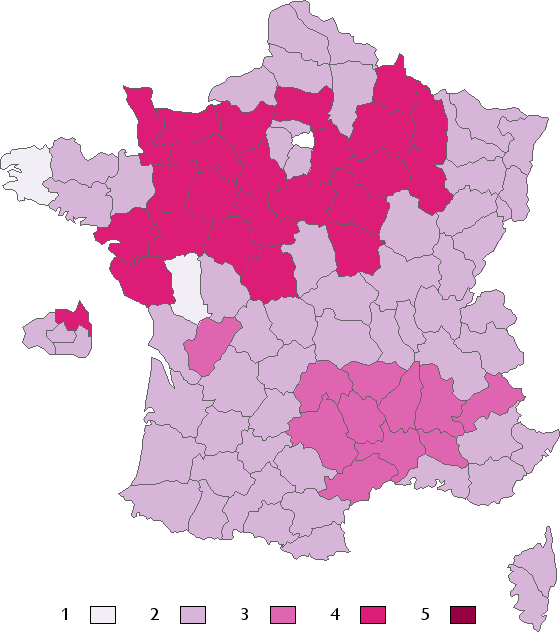
I found a good post on the subject. Here are the main points from it:
1. You do not kiss someone with a higher rank than you (i.e. your boss) unless they initiate it.
2. Men kiss if they are from the same family or good friends. Otherwise, a handshake will suffice.
3. Most people agree you kiss the right cheek first (move your head towards your left).
4. Even French people don’t always know how many kisses to give. The trend is toward fewer kisses rather than more (though you may still give your elderly aunt 4 kisses).
The “chambre de torture” (the practice lab) wasn’t nearly as bad as we were expecting. Actually, it’s pretty helpful to put on the headphones and listen to, and practice pronunciation of, the words and phrases we’ve been learning. The only thing torturous about it is that the equipment is archaic – the school’s been here 45 years! and it may be original. They really need to upgrade to computers instead of old mechanical tape recorders.
There are actually many words that are the same or very similar to their counterparts in English. The difficulty is in the pronunciation. This is why many of us can understand much more French, especially written French, than we can speak. For instance, ideal in English is idéal in French. But, in English, it’s pronounced… well, you know (2 syllables, ī-dēl), while in French, it’s pronounced ee-day-all. Other words are exactly the same, and universally recognized. In one class we were going around the room saying (in French) what type of computers and mobile phones we had. Chantal, from Taiwan, showed us her mini mobile phone (it might have been a Modu?) and after we all oohed and aahed over it for a bit, our teacher Aurelia exclaimed “Vous êtes COOL!”
Overall, the week was great and about what we had expected. The teachers are experienced, expressive, patient and funny. Our fellow students are diverse, personable, studious and nice (for the most part). The classes are interesting, informative and ever-changing. Thursday night the school sponsored a boat ride from Villefranche to Monaco and back. Friday night we had a welcome party at the school with sangria and a well-done buffet dinner.
Saturday morning, we did a tour of Villefranche-sur-Mer. Mark and I had always assumed Villefranche-sur-Mer meant “French village by the sea”, but actually, it means “tax-free town by the sea”. Lower taxes was one of the ways the Duke enticed people from the surrounding hills to move closer to the sea (in order to secure the area from pirates) back in the 14th century. There are several towns named Villefranche in France; the ‘sur-Mer’ was only added recently to distinguish it from the others.
From Wiki: It was also at Villefranche-Sur-Mer that The Rolling Stones recorded their 1972 album Exile on Main St., at the Belle Epoque-era mansion Nellcôte.
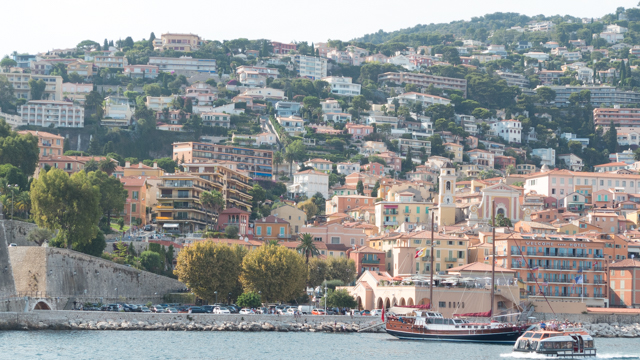
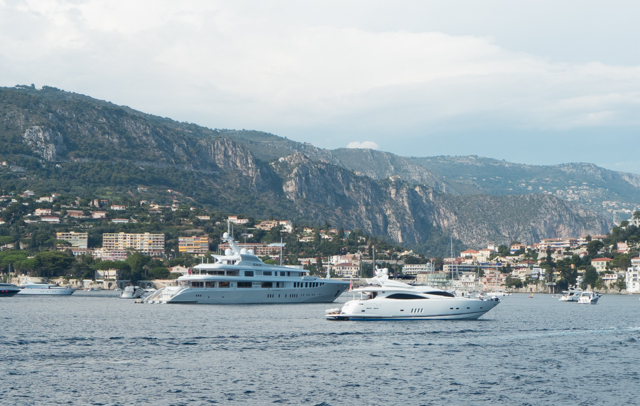
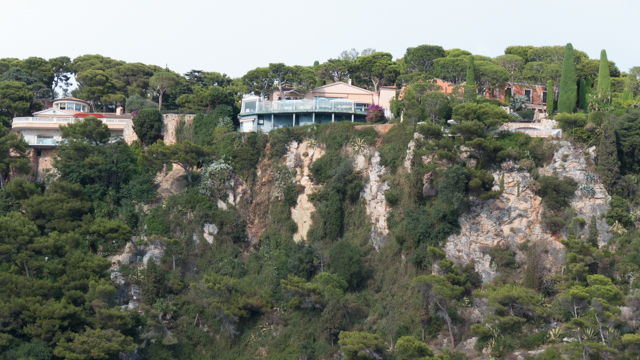
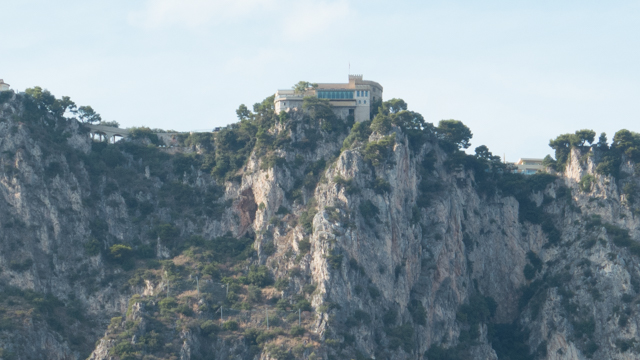
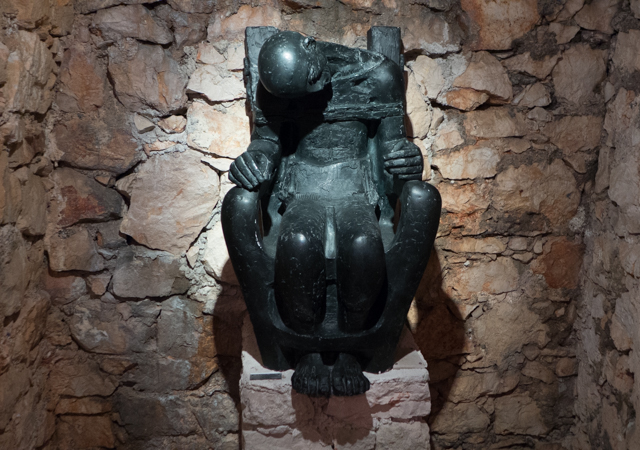
piece after being repatriated to France. His work was donated to and is displayed at a museum housed at the Villefranche Citadel.

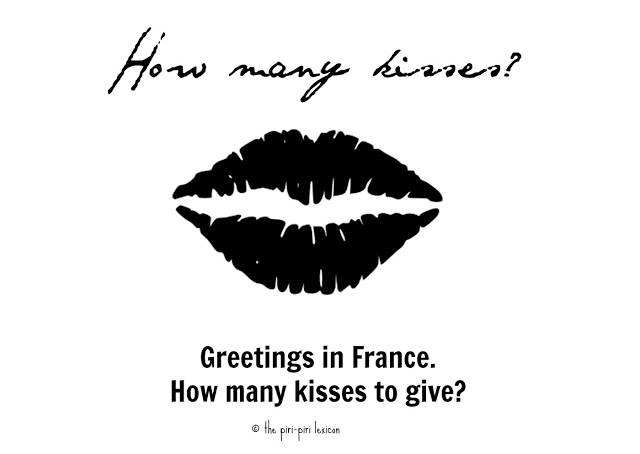
What a fabulous week! Good on you both for surviving the intensive course – loved reading about it xx